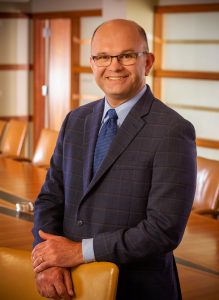Wisconsin Court of Appeals Rejects Novel Argument Against Enforcing Personal Guarantee
In Bank Mutual v. Sherman, No. 2015AP2357 (Ct. App. May 17, 2017) (per curiam), the Wisconsin Court of Appeals held that an ex-husband continued to be liable for a commercial debt he guaranteed years earlier, for his then-wife. The court was not persuaded by the ex-husband’s novel argument that after the couple’s divorce and her subsequent remarriage, his ex-wife became a new legal entity thereby relieving him of his liability as a personal guarantor.
In 2005, Daniel Bohringer personally guaranteed credit that Bank Mutual extended to his then-wife, Carol. Id., ¶2. The guarantee was broad, reaching “credit previously granted, credit contemporaneously granted, and credit granted in the future.” Id. Carol and Daniel divorced roughly five years later. Id., ¶3. Their property division awarded Daniel the couple’s business, Sammy’s Taste of Chicago, and awarded Carol the commercial building that housed the business. Id. Daniel also received the couple’s farm in Lancaster, Wisconsin. Id.
After the divorce, Carol incurred further debt obligations with Bank Mutual. Daniel did not receive notice of the notes Carol entered into, nor did he give consent. Id., ¶4. When Carol later defaulted on the note, Bank Mutual foreclosed on and sold the commercial property. Id. When sale of the building resulted in a deficiency of more than $50,000, the bank executed on Daniel’s farm in Lancaster to collect. Id.
Daniel moved to stay execution on his farm. He argued that his farm was exempt as his homestead under Wis. Stat. § 815.20(1). Id., ¶5. He also argued that he was not liable as a guarantor. The circuit court ruled in the bank’s favor on both grounds. Id.
On appeal, Daniel argued that the guarantee is unenforceable because his wife became a “different legal entity” once they divorced and she remarried. Id., ¶7. Daniel cited no authority for this novel theory. Id., ¶8. The court of appeals rejected this argument in one fell swoop, holding that the contract’s language keeps Daniel on the hook for the debt regardless of the divorce and remarriage. Id., ¶9. Additionally, the court noted that Daniel had expressly waived notice of future loans subject to the guaranty, such that extending the guaranty to Carol’s post-divorce loans did not violate either her or the bank’s duty of good faith and fair dealing. Id., ¶11.
After determining that the guaranty remains enforceable, the court of appeals affirmed the circuit court’s holding that Daniel’s farm was not exempt from execution. Id., ¶13. The court found record support for the circuit court’s conclusion that the farm was not Daniel’s homestead as defined in Wis. Stat. § 990.01(14). The circuit court relied on factors including that:
- Daniel neither receives mail nor has any utility services at the farm;
- Daniel keeps his clothes in an Oconomowoc apartment;
- Daniel notified both the Department of Motor Vehicles and the local election board that his apartment in Oconomowoc was his residence;
- Daniel’s tax filings identify the Oconomowoc apartment as his residence; and
- Daniel receives the property tax bill for the farm at his Oconomowoc address.
Based on these findings, the court held that the circuit court did not err in “restat[ing] its previous finding that Bohringer’s Oconomowoc apartment is where he makes his home because he has equipped the apartment as his home, with all of the comforts and conveniences, and he treats the apartment like his home.” Id., ¶16.
Bank Mutual v. Sherman reaffirms that courts enforce clear contract language. That clear language led the court to dismiss Daniel’s argument that his divorce and his ex-wife’s subsequent remarriage vitiated his obligations as a guarantor. This decision highlights that personal guaranty agreements are written broadly, and leave little room, if any, to discharge the obligations therein. Business lawyers should be aware that courts will enforce the broad language sometimes contained in personal guarantees. Family lawyers may want to consider the existence of any personal guarantees relating to property being apportioned in a divorce proceeding.
Law clerk Olivia Pietrantoni assisted in researching and writing this post.




